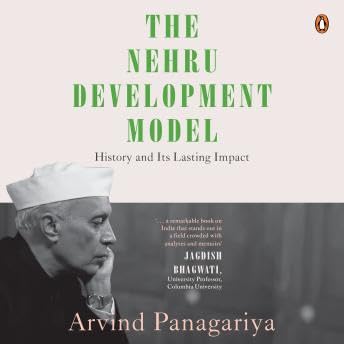
Nehru Development Model: History and Lasting Impact - Arvind Panagariya
Failed to add items
Sorry, we are unable to add the item because your shopping cart is already at capacity.
Add to basket failed.
Please try again later
Add to Wish List failed.
Please try again later
Remove from Wish List failed.
Please try again later
Follow podcast failed
Unfollow podcast failed
-
Narrated by:
-
By:
About this listen
https://esound.space
Title: Nehru Development Model: History and Lasting Impact
Author: Arvind Panagariya
Narrator: Ashish David
Format: Unabridged
Length: 15:23:13
Language: English
Release date: 09-16-2025
Publisher: Random House (Audio)
Genres: Business & Economics, Non-Fiction, Philosophy, Accounting & Finance
Summary:
At Independence, Pandit Jawaharlal Nehru, India’s first prime minister, embarked upon a political and an economic project. His political project―to put India on the democratic path―was a resounding success.This success, though, was marred by an equally resounding failure of Nehru’s economic project, built on the development of heavy industry, an expanding public sector, and relative isolation from world markets. It failed to produce the growth necessary to rid India of poverty and bequeathed an ethos that made a switch to an outward-oriented, pro-market economy a real challenge in the post-Nehru era. This line of thinking remains entrenched in the Indian political, intellectual, bureaucratic, and business constituencies.This book by renowned economist and policymaker Arvind Panagariya is an attempt to systematically document the economic history of the Nehru era and its impact on contemporary economic thought and post-Nehru economic policymaking.How did this system evolve? What was the influence of Nehru’s thinking on it? Above all, how did the economic history and thought of this era affect subsequent policymaking in India? These are the big questions that this volume attempts to answer.
No reviews yet
In the spirit of reconciliation, Audible acknowledges the Traditional Custodians of country throughout Australia and their connections to land, sea and community. We pay our respect to their elders past and present and extend that respect to all Aboriginal and Torres Strait Islander peoples today.


